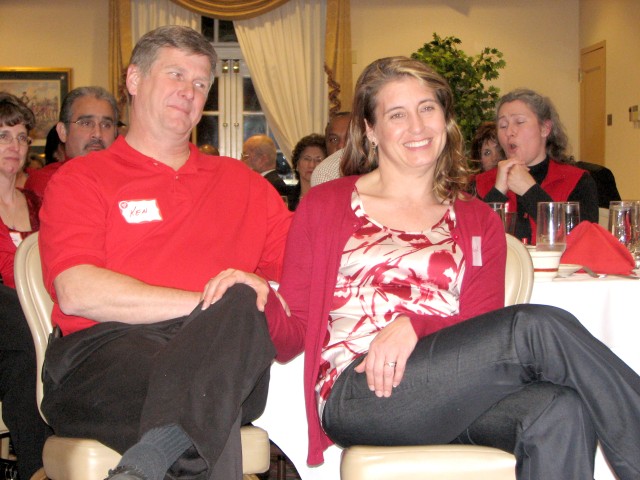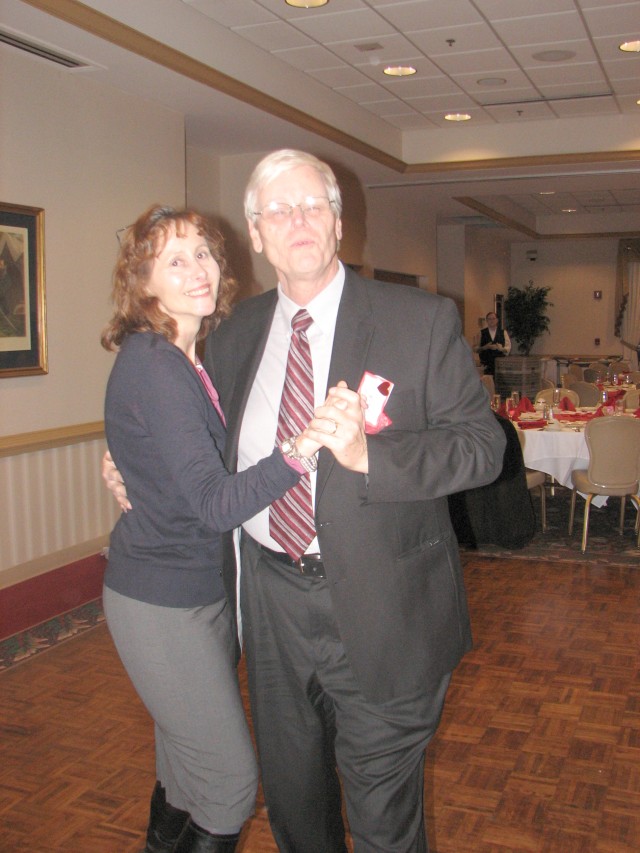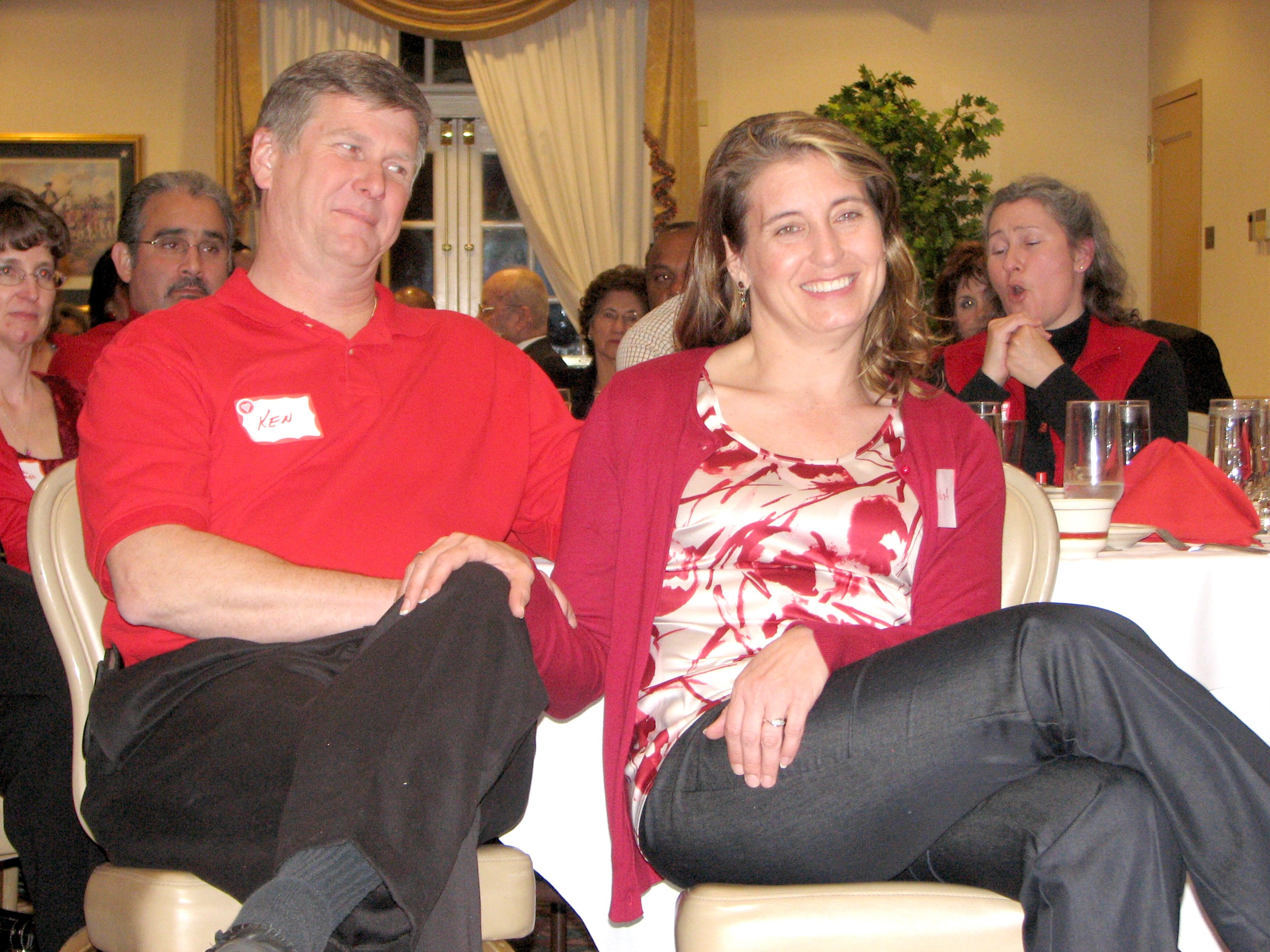On Feb. 11, the U.S. Army Garrison Chaplain's Office hosted a Valentine's Day dinner at The Commons at Fort McPherson to help inspire and encourage romances and friendships.
The event, attended by 178 people, celebrated the importance of relationships and provided a forum for people to interact with one another and strengthen their bonds over the course of a meal provided by The Commons staff.
For Arthur and Alice Carey, the dinner was a chance to socialize with friends from their church, the Catholic congregation on Fort McPherson, and spend time with each other.
The couple, who are approaching 51 years of marriage, said times have significantly changed since they met.
"It was a lot different in the 1950s, when we met. You didn't become intimate before you were married and divorce was not acceptable. The culture has changed," Alice said.
One aspect of society that has also changed is the nation's military culture, said Arthur, a retired colonel, adding while his generation had the Vietnam War, the separations because of deployment weren't as frequent as military couples face today. Despite this and other cultural changes, he said couples can still make things work and enjoy long term relationships like he and his wife have.
"You need to accept things as you find them, have a willingness to take things as they come, (as well as have) perseverance and a determination to make things work," he said. Alice agreed, adding that when things go wrong, it is important for a person to try to make the relationship work rather than push all the blame onto their partner.
Arthur said it is important for both individuals to be able to change. "If you see the other person change, you change yourself," he said.
Connie Gray, administrative assistant, Fort McPherson Chapel office, also said communication is an important part of a long, lasting marriage, as well as being each other's best friend.
Gray has been married to Sgt. Maj. Robert Gray, Third Army/U.S. Army Central (Third Army) G-6 sergeant major, for 22 years.
Though married less than a tenth of the time as the Careys and a fourth of the Grays, Maj. Chris Baker, Third Army G-4 mobility officer, and his wife of five years, Sarah, shared similar observations on making a marriage work. "It's patience and understanding. You can't get mad at him when the Army tells him to do something," Sarah said. "If you love your husband, you have to deal with it (and) be a strong wife."
A military brat, Sarah said her father, Frank Harman, helped her know what to expect when marrying into the military, something Chris said has helped their marriage. "I married a strong and understanding wife," he said.
In today's military culture, where divorce rates are increasing according to figures provided by the Pentagon, marriage needs more than just two people falling in love, said guest speakers Richard and Brenda Pace, adding it is important to know if the love two people feel for one another is the marrying kind of love. The two have been married for 36 years, 28 of them while Richard served in the Army.
Richard, a retired colonel, said love takes many forms and the "marrying type" has several qualities to it, such as willingness to be free and open in communication, make commitments and do the thing a partner needs from a spouse. "Love is not just a feeling, but about doing and giving," Richard said. "Often, we just look at what we can get, when we should look at what we can give to our spouse."
Alice credits the slow approach she and her husband took making sure their love was genuine to their longevity.
The two knew each other for three years before getting married. The slow approach, more standard in their time, seems to have worked not just for them, but also for others in their generation, Arthur said.
"At a West Point class reunion, 68 percent were still married to their first wife," he said. "I guess we chose well."
Making marriage work requires more than choosing well, the Paces said. It requires a commitment to be a good spouse and willingness to keep learning.
"A majority of people's lives are enriched with committed, loving relationship," Richard said. "If both try to make it work, it is almost guaranteed to be success."




Social Sharing